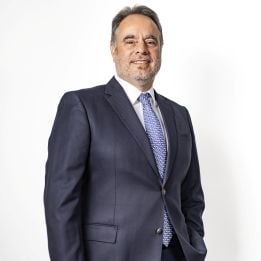

General counsel Bolivia | Repsol



Marcelo Terceros Pereyra
General counsel Bolivia | Repsol
How do you approach managing legal aspects during periods of instability or crises, and how does your legal strategy align with the broader business strategy to ensure the organisation’s resilience?
In an industry exposed to geopolitical, regulatory, and commodity-price volatility, our Legal Department operates as an integrated risk-management partner rather than a downstream advisor. When a disruption materialises—whether a sanctions event, supply-chain interruption, cyber incident or civil unrest—we immediately activate a multidisciplinary “Resilience Cell” led jointly by Legal, Risk, and Corporate Security. Within the first 24 hours the Cell maps the legal exposure across jurisdictions, calibrates contractual and regulatory levers that preserve business continuity, and defines a communications protocol that ensures one single source of truth to boards, regulators, counterparties and employees. Our digital tools are pivotal: the Harvey generative-AI platform allow us to triage thousands of contractual provisions, force-majeure clauses and sanction lists in near real time, compressing what previously required days into hours. The result is a legal strategy that moves in lockstep with the Group’s crisis-management framework and enables the business to maintain production, protect reputation, and safeguard stakeholder value.
What role do you play in promoting and ensuring sustainability in your organisation?
Sustainability is embedded through a three-pillar legal framework.
Firstly, in the area of governance, ESG commitments have been elevated to the level of board bylaws. The Legal Department meticulously reviews the annual Integrated Sustainability Report’s Bolivian chapters to ensure all disclosures align with international standards and that forward-looking statements are appropriately protected by safe harbor provisions.
When it comes to transactions, every capital project now undergoes an “ESG Legal Pre-Clearance” whereby counsel assesses the deal against the local environmental licenses and indigenous-rights statutes. Only projects clearing this gate proceed to the Investment Committee.
In terms of Culture & Accountability, at the C-level of Legal in Madrid, the Legal team co-chairs the Human Rights & Climate Committee, drives supplier-code audits, and trains 100% of our lawyers on green-contracting clauses. By aligning contractual incentives with decarbonisation milestones, we convert sustainability from a reporting obligation into a value-creation lever.
How do you prioritise diversity and inclusion within your legal department, and what initiatives have you implemented to foster a more inclusive and equitable work environment?
We view inclusion as a strategic differentiator that enhances risk perception and decision quality. Our programs rotate lawyers across different projects worldwide, ensuring cross-cultural insight and accelerating female leadership, we have recent experience of our female lawyers leading worldwide projects as the Contract Lifecycle Management and participating in Chile on the Crime Prevention Model implementation. We have also implemented mandatory inclusive-language training, and sponsorship alliances with law faculties and commerce chambers in Bolivia to widen the social pipeline. Finally, our generative-AI tools reduce repetitive tasks, allowing more flexible work arrangements that disproportionately benefit caregivers and thus foster retention of diverse talent.
Through these combined initiatives the Legal Department not only safeguards the company in turbulent times but also propels the Group’s long-term strategic ambition to lead the energy transition responsibly and inclusively.
Legal senior manager | Repsol